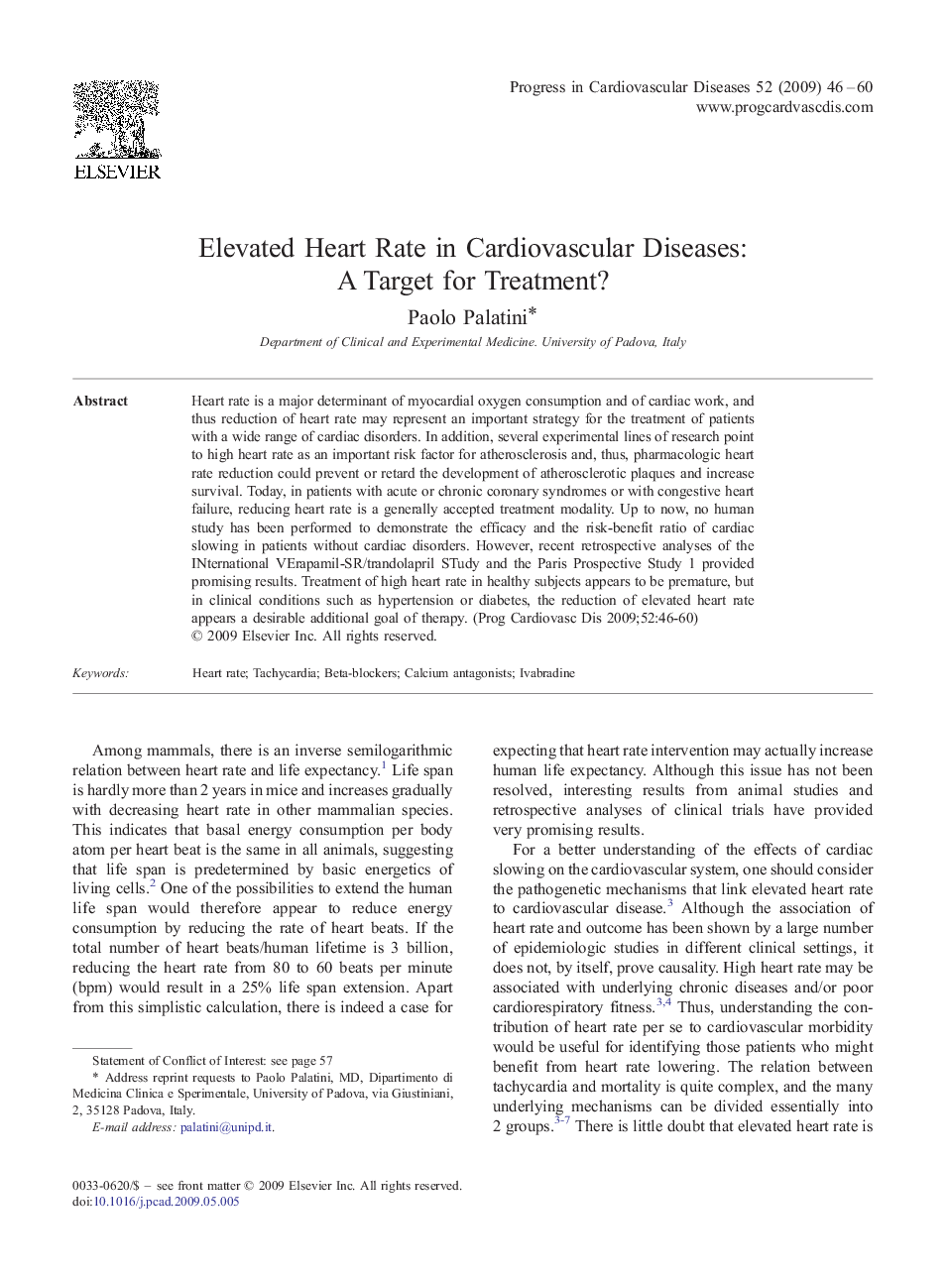| Article ID | Journal | Published Year | Pages | File Type |
|---|---|---|---|---|
| 3006983 | Progress in Cardiovascular Diseases | 2009 | 15 Pages |
Heart rate is a major determinant of myocardial oxygen consumption and of cardiac work, and thus reduction of heart rate may represent an important strategy for the treatment of patients with a wide range of cardiac disorders. In addition, several experimental lines of research point to high heart rate as an important risk factor for atherosclerosis and, thus, pharmacologic heart rate reduction could prevent or retard the development of atherosclerotic plaques and increase survival. Today, in patients with acute or chronic coronary syndromes or with congestive heart failure, reducing heart rate is a generally accepted treatment modality. Up to now, no human study has been performed to demonstrate the efficacy and the risk-benefit ratio of cardiac slowing in patients without cardiac disorders. However, recent retrospective analyses of the INternational VErapamil-SR/trandolapril STudy and the Paris Prospective Study 1 provided promising results. Treatment of high heart rate in healthy subjects appears to be premature, but in clinical conditions such as hypertension or diabetes, the reduction of elevated heart rate appears a desirable additional goal of therapy.
